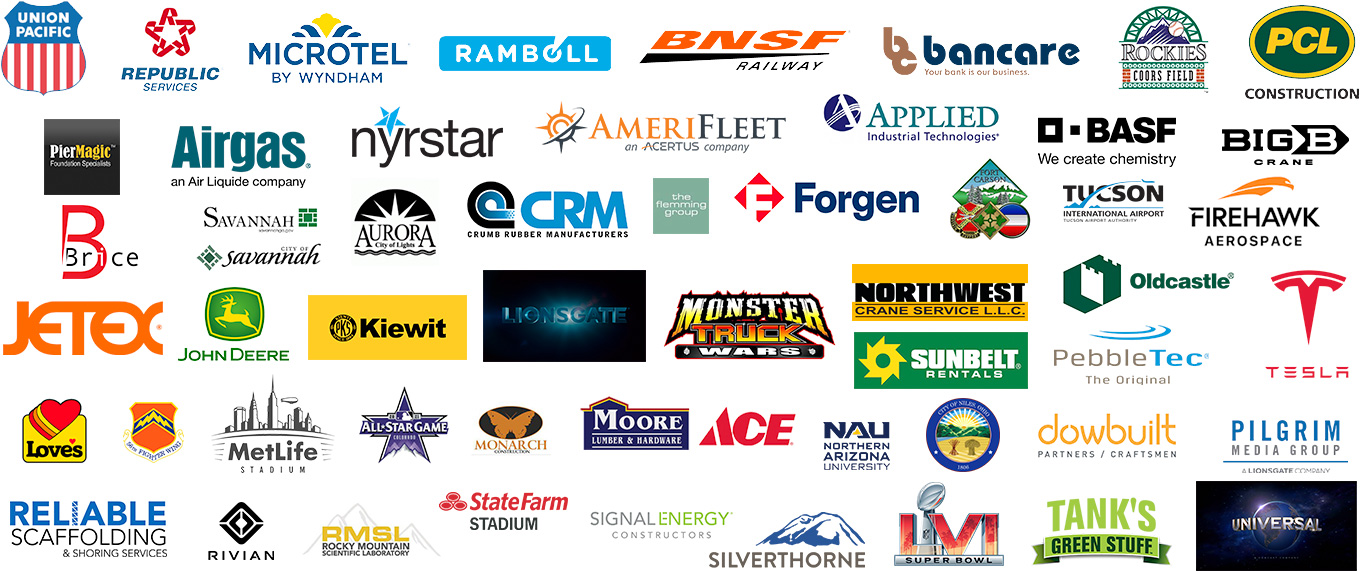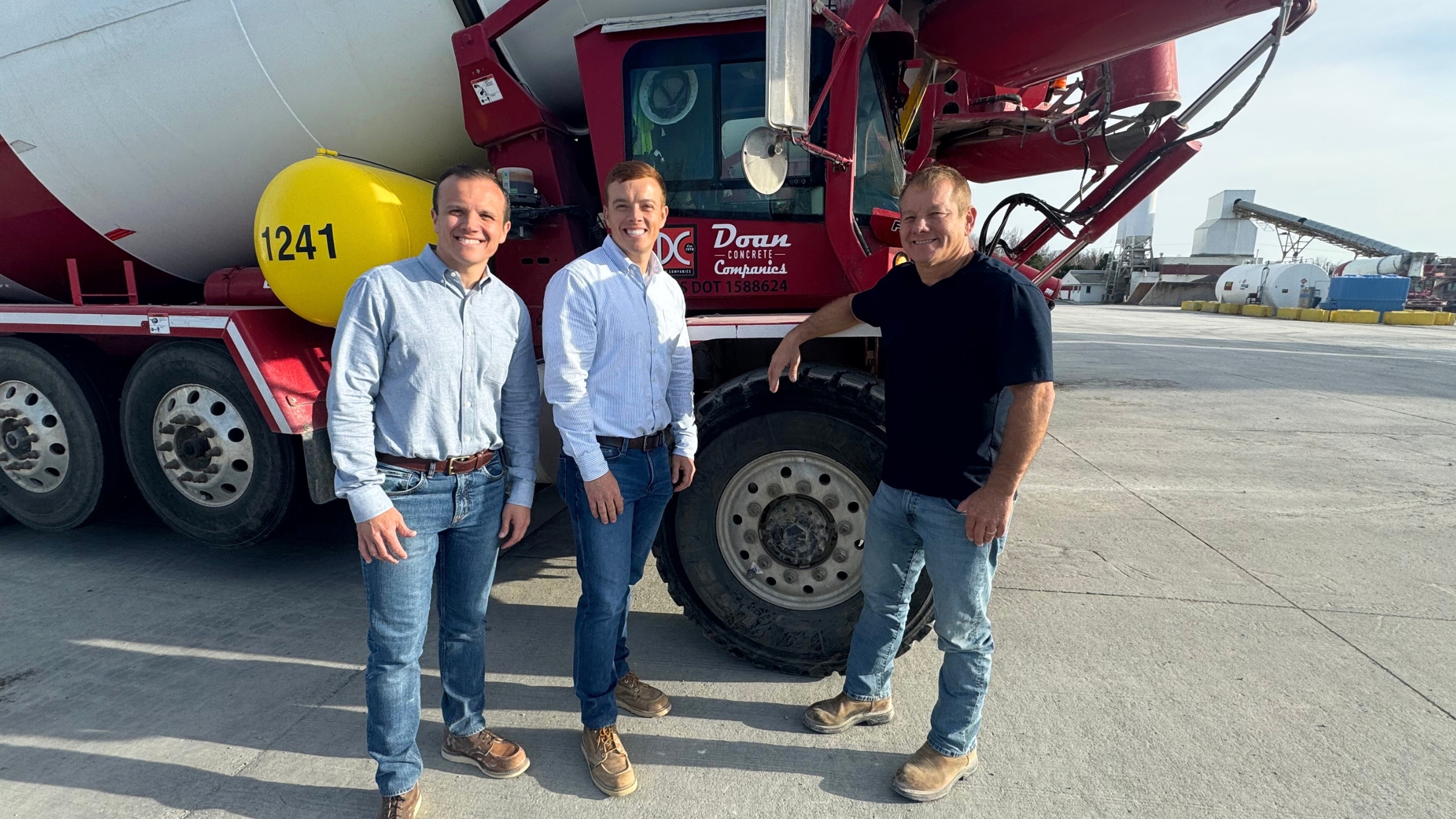The Benefits of Making Use Of Concrete Solutions for Resilient Frameworks
Concrete services provide a range of benefits for creating resilient frameworks. This product is renowned for its exceptional toughness and durability. Its resistance to ecological aspects makes it a functional choice for numerous climates. In addition, concrete is usually much more cost-efficient in the lengthy run. As designers and contractors progressively discover ingenious applications, the possibility of concrete in style becomes also a lot more fascinating. The discussion of these benefits discloses compelling insights right into contemporary building and construction practices.

Remarkable Toughness and Sturdiness
Concrete is renowned for its phenomenal strength and resilience, making it a favored product in building. Concrete Companies Near Me. Its ability to stand up to heavy tons and withstand contortion under stress is unmatched, which is why it is often utilized for fundamental elements, supporting frameworks, and skyscrapers. The make-up of concrete, that includes cement, water, and aggregates, enables it to achieve high compressive toughness, often exceeding that of conventional building products like timber or steel. This toughness guarantees structural stability and durability, thus minimizing upkeep prices over time. Additionally, concrete's durability is apparent in its capacity to endure numerous stress and anxieties without catching deterioration, making it appropriate for diverse applications, from bridges to household homes. In general, the durable qualities of concrete add to its online reputation as a trustworthy option for constructing long-lasting frameworks that stand the examination of time
Resistance to Environmental Elements
Several building and construction products are vulnerable to ecological degeneration, concrete displays amazing resistance to various aspects such as moisture, temperature fluctuations, and chemical exposure. Its intrinsic residential or commercial properties make it particularly ideal for varied applications, from domestic buildings to huge facilities tasks. Concrete's low leaks in the structure restrictions water absorption, minimizing the threat of damage from freeze-thaw cycles and avoiding mold development. Additionally, it preserves structural stability when subjected to severe temperatures, making it ideal for regions with rough environments. Concrete also stands durable versus chemical strikes, consisting of sulfates and acids, which can weaken other materials. This resistance is additionally enhanced by the use specialized ingredients and therapies throughout the blending process. Generally, concrete's durability in the face of environmental obstacles guarantees longevity and reliability, making it a preferred selection for home builders and engineers intending to construct sustaining frameworks.
Cost-Effectiveness Over Time
Cost-effectiveness in concrete services manifests as a long-term financial investment that substantially benefits structures. This strategy not just lessens maintenance expenses but additionally boosts power efficiency, leading to significant financial savings over time. Understanding these factors is essential for reviewing the overall worth of durable concrete building and constructions.
Long-Term Financial Investment Advantages
Spending in sturdy structures yields significant long-lasting advantages that prolong beyond first expenditures. Concrete solutions, recognized for their toughness, add to a structure's durability, eventually lowering the complete price of possession. By making use of top notch products and skilled craftsmanship, proprietors can expect less repair work and substitutes in time. This reliability converts into a steady asset value, making concrete building and constructions a smart monetary option in the property market. Furthermore, frameworks built with concrete are typically more energy-efficient, more enhancing their cost-effectiveness. As a result, the preliminary investment in concrete services can bring about considerable financial savings and higher returns over the years, verifying the worth of choosing durable choices for resilient construction jobs.
Minimized Upkeep Expenses
The durability of concrete frameworks not just enhances asset value yet additionally significantly minimizes upkeep expenditures in time. Unlike materials that degrade rapidly, concrete shows exceptional durability against various ecological variables, such as moisture, temperature variations, and insects. This intrinsic toughness translates to fewer replacements and repairs, thus reducing long-lasting expenses. Furthermore, the low absorption price of concrete restrictions concerns connected to mold and mildew, which can necessitate costly remediation efforts. Regular maintenance is commonly lowered to easy cleansing instead than extensive repair work, better adding to cost-effectiveness. Therefore, home owners buying concrete solutions can anticipate a considerable reduction in maintenance budget plans, making concrete an economically sound selection for sturdy frameworks.
Power Effectiveness Savings
As power performance ends up being increasingly essential in construction, concrete structures attract attention for their ability to improve lasting savings on utility costs. The thermal mass of concrete enables buildings to maintain secure indoor temperature levels, decreasing the requirement for heating and cooling down systems. This building decreases power consumption and equates to lower energy expenses in time. In addition, concrete's sturdiness contributes to less substitutes and repair services, also boosting cost-effectiveness. Furthermore, modern-day concrete innovations, such as insulated concrete types and energy-efficient blends, improve insulation and power performance, causing significant cost savings. Subsequently, purchasing concrete solutions not only benefits the atmosphere via reduced power usage but also supplies considerable economic benefits for homeowner in the future.
Convenience in Design and Application
Concrete's adaptability in style and application permits a wide variety of personalized visual choices, making it appropriate for different building styles (Concrete Contractors Near Me). Its ability to adapt to varied architectural applications enhances its functionality in both commercial and residential projects. This flexibility placements concrete as a recommended product in modern-day building and construction
Customizable Visual Choices

Diverse Architectural Applications
Exploring the diverse structural find applications of concrete reveals its impressive versatility in style and performance. Concrete is made use of in different forms, including foundations, walls, pavements, and ornamental components, allowing it to adapt to numerous building styles. Its fundamental stamina and longevity make it ideal for skyscraper structures, bridges, and framework tasks. Additionally, concrete can be formed into intricate shapes, accommodating innovative designs while preserving architectural stability. This adaptability likewise expands to domestic applications, such as patio areas, driveways, and retaining wall surfaces. Additionally, advancements in innovation have caused the growth of specialized concrete blends, improving performance in details settings. This considerable applicability underscores concrete's important role in modern construction, fulfilling both useful and visual demands properly.
Low Maintenance Needs
Numerous homeowner value the low upkeep demands connected with concrete structures. Unlike materials such as timber or metal, concrete is normally resistant to bugs, rot, and rust. This resilience greatly minimizes the frequency and cost of fixings gradually. Cracks and surface area wear can be conveniently resolved with minimal initiative, often needing just regular securing or resurfacing.Additionally, concrete structures do not need routine painting or discoloration, further adding to their reduced maintenance. This characteristic is especially beneficial for business buildings, where upkeep costs can rapidly accumulate.Furthermore, concrete is less vulnerable to weather-related damages, making certain that frameworks continue to be intact no matter of environmental problems. Therefore, homeowner can take pleasure in the long-lasting advantages of concrete, consisting of lowered labor and upkeep costs, enabling them to allocate sources to various other essential areas of their buildings. Inevitably, the low maintenance demands of concrete make it an appealing option for constructing resilient frameworks.
Eco-Friendly Structure Product
As the need for sustainable building methods expands, concrete becomes an environmentally friendly building material that provides many ecological advantages. Its manufacturing can include recycled products, such as industrial spin-offs and waste accumulations, which minimizes the demand for virgin resources and decreases landfill waste. Additionally, concrete has the capacity to regulate temperature, thus enhancing power performance in structures. This thermal mass result can bring about reduced energy consumption for home heating and air conditioning, additional minimizing a structure's carbon footprint.Moreover, concrete is durable and sturdy, which indicates structures require less fixings and improvements gradually, resulting in less resource use overall. Breakthroughs in innovation have likewise led to the development of eco-friendly and low-carbon concrete solutions that minimize greenhouse gas exhausts throughout production. By focusing on see this here concrete in building jobs, home builders can contribute to a much more sustainable future while ensuring the long life and durability of frameworks.
Improved Residential Or Commercial Property Value and Appeal
A sound concrete structure significantly improves property worth and allure, often making it a lot more attractive to prospective buyers or occupants. Concrete's resilience and reduced maintenance demands add significantly to long-lasting financial investment returns. Qualities including top quality concrete buildings often tend to draw in greater deals due to their viewed stability and long life. In enhancement, aesthetically pleasing concrete designs, such as stamped or colored surfaces, can boost curb charm, developing a positive initial impression.Moreover, concrete frameworks often meet contemporary building criteria, which can be a selling point for environmentally conscious customers. The power performance related to well-insulated concrete also attract customers aiming to reduce utility prices. In general, purchasing concrete solutions not just bolsters the architectural honesty of a residential property yet additionally enhances its bankability, causing increased building worth and a competitive edge in the property market.
Often Asked Inquiries
The length of time Does It Require To Cure Concrete Effectively?
The healing process of concrete normally takes concerning 28 top article days to accomplish excellent stamina, although preliminary setup occurs within hours. Variables like temperature and humidity can affect the treating duration and effectiveness significantly.
What Kinds Of Concrete Services Are Readily Available?
Various sorts of concrete services exist, including pouring, developing, ending up, resurfacing, and attractive concrete. Concrete Pasadena TX. Companies may also supply repair service, repair, and installation of concrete structures, dealing with both domestic and commercial demands
Can Concrete Be Recycled After Its Usage?
Concrete can without a doubt be recycled after its usage. When processed, it can be repurposed for brand-new construction jobs, lowering waste and promoting sustainability within the building sector while preserving structural honesty in new applications.
What Are the most effective Practices for Pouring Concrete?
When pouring concrete, best methods consist of proper website prep work, guaranteeing suitable temperature level conditions, using proper blending ratios, preserving constant pouring methods, and enabling appropriate curing time to boost toughness and toughness of the completed framework.
Are There Any Alternatives to Standard Concrete?
